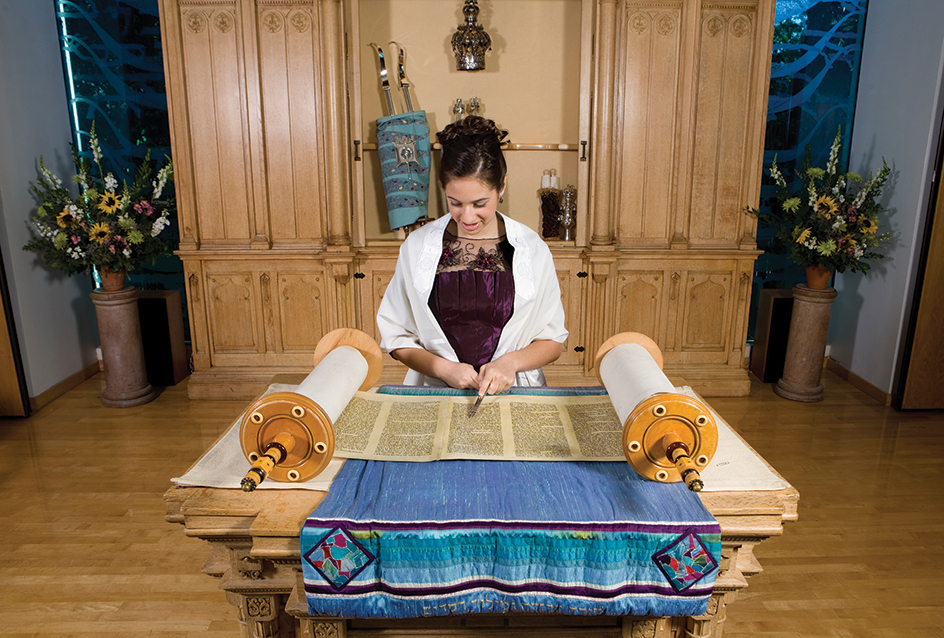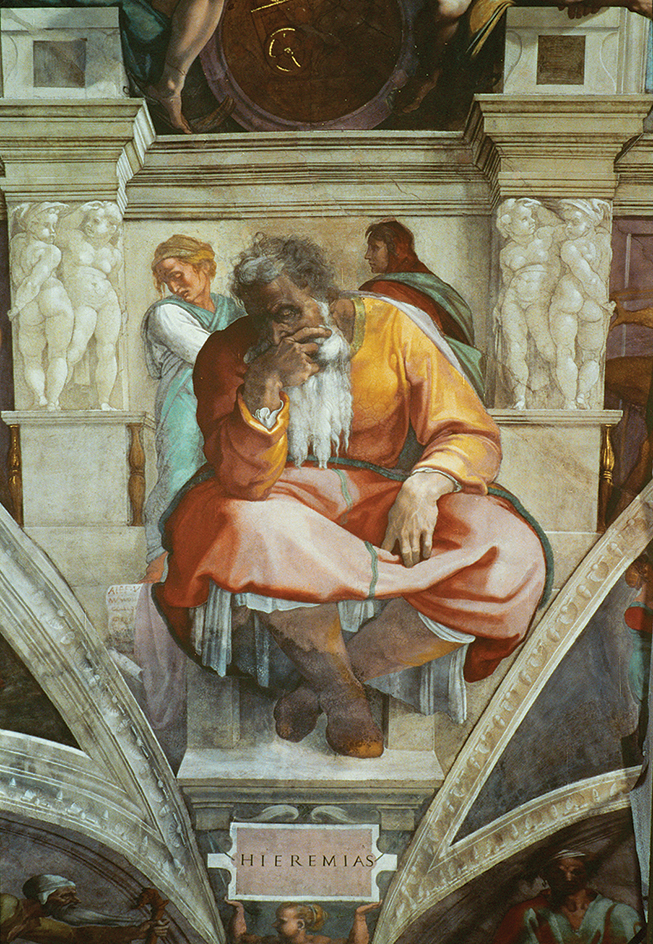Old Testament is the Christian name for the writings that make up the first part of the Christian Bible. The individual writings collected in the Bible are known as books. The second part of the Christian Bible is the New Testament. The books that are officially accepted by any religious group as part of its Bible are called its canon.
Many of the books of the Old Testament come from the older Jewish Bible. The Jewish Bible is commonly called the Hebrew Bible because most of it was written in the Hebrew language. Roman Catholic and Orthodox Christian versions of the Old Testament also include some books that are not in the Hebrew Bible. See Bible (table: The books of the Bible) .
Many scholars avoid using the term Old Testament because it is a Christian term and Jews also use the books to which it refers. Instead, these scholars use the more neutral terms Hebrew Bible and Tanak. Tanak incorporates the first letters of three Hebrew words that represent the three sections of the Jewish Bible—Torah (Law), Nebi’im (Prophets), and Ketubim (Writings).

Origins.
The ancestors of the Jewish people composed the books collected in the Old Testament between about 1000 and 165 B.C. Much of the material existed in oral form before it was written down. Some books were rewritten several times by different people. These people composed new material and added other texts and teachings to the earlier writings.
The Old Testament begins with stories about the creation of the world and God’s promises to Abraham and Abraham’s wife Sarah, the ancestors of the Jews. It describes how Moses led Abraham and Sarah’s descendants, the Israelites, out of slavery in Egypt to the Promised Land of Canaan (later called Palestine). Canaan consisted of an area that extended roughly from east of the Jordan River to the Mediterranean Sea. The Old Testament also tells stories about how the Israelites conquered and settled Canaan. Eventually, King David and his son Solomon established a line of rulers. Some of the earliest stories in the Old Testament may have been written down during the reigns of David and Solomon.
In 922 B.C., the kingdom of the Israelites split into two nations—Israel and Judah. The Jews composed and circulated many teachings included in the Old Testament in oral and written forms during the time of the divided kingdom, from 922 to 586 B.C.
Some of the most important prophets and poets of the Old Testament lived during a period called the Babylonian Exile. The exile began in 587 or 586 B.C., with the Babylonian conquest of Judah, and lasted until 538 B.C. During that period, the Babylonians held many Jews captive in Babylonia. The captives collected, expanded, and edited many of the teachings, laws, and historical records in the Old Testament.
Other books were written after the exile. Daniel was the last to be written, about 165 B.C.
Ancient translations.
Most of the books in the Old Testament originally were composed in Hebrew. Some chapters in the Books of Daniel and Ezra were composed in Aramaic, a language similar to Hebrew.
In the 200’s B.C., Jewish scholars in Alexandria, Egypt, translated the Hebrew Torah into Greek. Their translation is called the Septuagint. The Septuagint gradually expanded to include other books of the Hebrew Bible, plus some books not in the Hebrew Bible.
The Old Testament books were later translated into Syriac, Ethiopic, Coptic, Slavonic, and Latin. In A.D. 405, the Christian scholar Jerome (later Saint Jerome) completed a Latin translation of the Bible called the Vulgate. It included the Old and New Testaments and was the official Bible of the Roman Catholic Church for centuries.
Contents.
The Old Testament has four parts. They are the Pentateuch, the historical books, the wisdom books, and the Prophets. The Pentateuch, from the Greek word for five, comprises the first five books of all Bibles—Genesis, Exodus, Leviticus, Numbers, and Deuteronomy. In Hebrew, the Pentateuch is called the Torah, meaning the teaching. When the Pentateuch was translated into Greek, the word torah was translated as law. People sometimes call the Pentateuch the Books of the Law. According to tradition, Moses wrote the Pentateuch. Consequently, the Pentateuch is also called the Books of Moses. But scholars recognize that different authors and editors composed the Pentateuch over many centuries.
The three parts of the Old Testament that follow the Pentateuch differ in Catholic, Orthodox, and Protestant Bibles. The historical books in Catholic Bibles are Joshua, Judges, Ruth, 1 and 2 Samuel, 1 and 2 Kings, 1 and 2 Chronicles, Ezra, Nehemiah, Tobit, Judith, Esther, and 1 and 2 Maccabees. The wisdom books are Job, Psalms, Proverbs, Ecclesiastes, Song of Songs, the Wisdom of Solomon, and Sirach (also called Ecclesiasticus and Ben Sirah). The Prophets includes Isaiah, Jeremiah, Lamentations, Baruch, Ezekiel, Daniel, Hosea, Joel, Amos, Obadiah, Jonah, Micah, Nahum, Habakkuk, Zephaniah, Haggai, Zechariah, and Malachi.

Several books in the Catholic version of the Old Testament are called deuterocanonical, meaning canonized second. They officially became part of the Catholic canon after other Old Testament books did. They are Tobit, Judith, 1 and 2 Maccabees, the Wisdom of Solomon, Sirach, and Baruch. The deuterocanonical books also are found in the Septuagint and the Vulgate.
The Greek Orthodox Old Testament includes all the books in the Catholic Old Testament plus five more—1 and 2 Esdras, the Prayer of Manasseh, Psalm 151, and 3 Maccabees. An appendix (supplement) also contains 4 Maccabees. The Ethiopian Orthodox Old Testament has additional books, including Jubilees and 1 Enoch.
Today, the Protestant Old Testament includes most of the books in the Catholic Old Testament. However, the Books of Esther and Daniel are shorter in the Protestant Bible than in the Catholic Bible. The Protestant Old Testament also excludes the deuterocanonical books. In the A.D. 1500’s, some Protestant scholars became concerned that the Old Testament included books not found in the Hebrew Bible. Protestants removed these books from the Old Testament and called them Apocrypha, meaning hidden. Some Protestant Bibles, however, have a separate section for Apocrypha.
